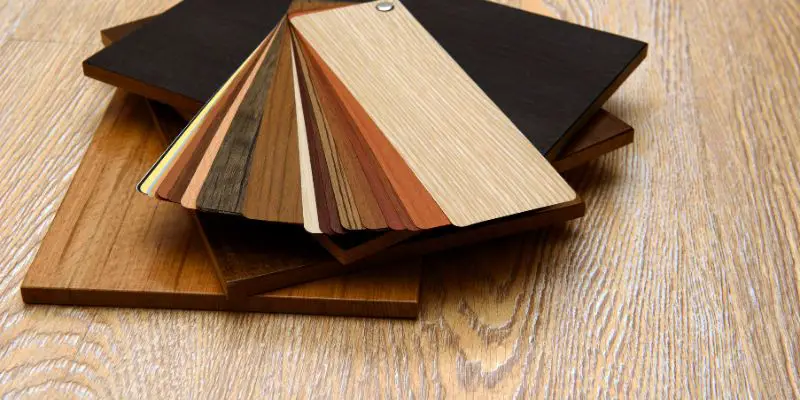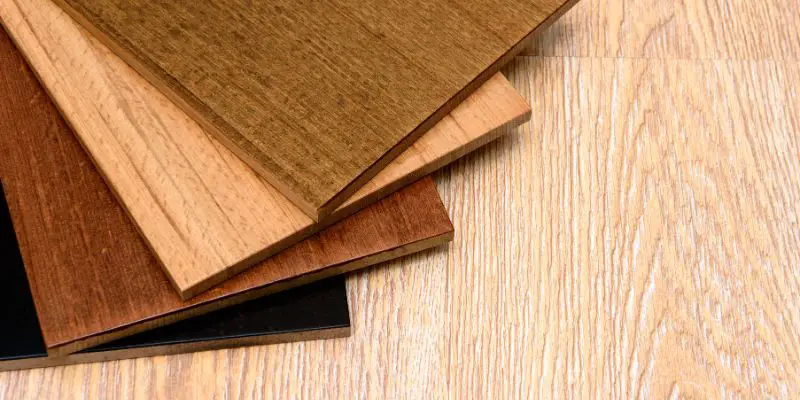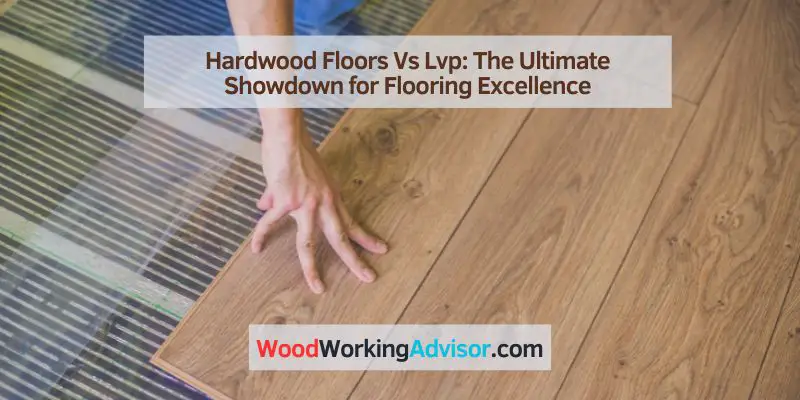Hardwood floors and LVP have their own advantages and considerations, making the choice between them depend on personal preferences, budget, and maintenance requirements. Hardwood floors offer a timeless and natural look, excellent durability, and the ability to be refinished multiple times.
However, they are more expensive, require regular maintenance and can be susceptible to scratches and water damage. On the other hand, LVP (luxury vinyl plank) flooring is more cost-effective, easy to install, and resistant to scratches, stains, and moisture. It comes in a variety of designs that mimic the look of hardwood floors, but it may lack the same level of authenticity and durability.
Both options have their merits, so it ultimately comes down to weighing the aesthetic appeal, durability, and long-term maintenance factors that align with your needs and preferences.
Appearance And Aesthetic
When it comes to choosing flooring for your home, appearance and aesthetic play a significant role in the decision-making process. Both hardwood floors and luxury vinyl planks (LVP) have their own unique qualities that contribute to the overall look and feel of a space. In this section, we’ll delve into the variety of styles and finishes offered by these two flooring options, as well as the natural beauty of hardwood and the versatility and modern designs of LVP.

Variety Of Styles And Finishes
If you’re looking for a wide range of styles and finishes to match your home’s decor, both hardwood floors and LVP have plenty to offer. Hardwood flooring comes in various species such as oak, maple, and cherry, with each type showcasing its own distinct grain patterns and colors. Additionally, hardwood can be stained in different shades, from light to dark, giving you the flexibility to create the desired aesthetic for your space.
On the other hand, LVP is known for its versatility when it comes to mimicking different materials, including hardwood. With advanced printing technology, LVP can replicate the look of a variety of wood species, stone, or ceramic tiles. Whether you prefer the rustic charm of reclaimed wood or the sleek elegance of marble, LVP offers a vast array of styles and finishes to suit your personal taste.
Natural Beauty Of Hardwood
One of the enduring appeals of hardwood floors is their natural beauty. Each plank is unique, bearing the natural grains, knots, and imperfections that add character to the flooring. The warmth and richness of hardwood can instantly elevate the aesthetics of a room, creating a timeless and inviting atmosphere. Its authentic and organic look has a way of making any space feel cozy and welcoming. With proper care and maintenance, hardwood floors can retain their beauty and charm for many years to come.
Versatility And Modern Designs Of Lvp
While hardwood floors have a classic appeal, LVP offers a modern touch with its versatility and contemporary designs. LVP can mimic various textures and finishes, such as distressed wood, high gloss, or matte, allowing you to achieve the desired look and feel without compromising on durability. Furthermore, LVP gives you the option to experiment with patterns, such as herringbone or chevron, creating unique and eye-catching floor designs.
Not only does LVP offer a wide range of aesthetics, but it also provides practical advantages. Its waterproof and scratch-resistant properties make it a popular choice for high-traffic areas and households with pets or children. With advancements in technology, LVP has come a long way in replicating the look and feel of real hardwood, offering the best of both worlds.
Durability And Maintenance
When it comes to choosing the right flooring option for your home, durability and ease of maintenance are crucial factors to consider. Both hardwood floors and Luxury Vinyl Plank (LVP) have their own unique advantages in terms of strength, resistance to scratches and dents, as well as ease of maintenance. Let’s delve deeper into these aspects to help you make an informed decision.
Strength And Longevity Of Hardwood
Hardwood floors have long been renowned for their strength and longevity, making them a popular choice among homeowners. With proper installation and care, hardwood floors can last for generations, standing the test of time. Hardwood is known for its exceptional durability, making it resistant to heavy foot traffic, impacts, and everyday wear and tear. This makes it an excellent investment for homeowners looking for flooring that can withstand the demands of a busy household.
Resistance To Scratches And Dents
The resistance to scratches and dents is another important aspect to consider when choosing between hardwood floors and LVP. Hardwood floors, especially those with higher hardness ratings such as oak or Brazilian cherry, are highly resistant to scratches and dents. However, it’s important to note that no hardwood floor is completely scratch-proof. Regular maintenance and preventative measures such as using furniture pads and rugs can help minimize scratches over time.
On the other hand, LVP flooring, also known as luxury vinyl tile or plank, offers impressive scratch and dent resistance. This is due to its strong wear layer, which acts as a protective barrier against daily wear and tear. LVP flooring is engineered to be extremely durable and is designed to withstand the rigors of everyday life, including the pitter-patter of pets’ paws and the hustle and bustle of children at play.
Ease Of Maintenance With Lvp
When it comes to maintenance, LVP flooring takes the lead in terms of convenience. LVP is resistant to stains, spills, and moisture, making it incredibly easy to clean and maintain. With its waterproof properties, LVP is an ideal choice for areas prone to moisture, such as kitchens and bathrooms. Regular sweeping and occasional mopping are typically all that’s needed to keep LVP flooring looking its best.
Hardwood floors, on the other hand, require a bit more effort in terms of maintenance. While they offer the timeless beauty and natural warmth that many homeowners desire, hardwood floors need regular sweeping and occasional refinishing to maintain their luster and protect them from damage. It’s important to note that hardwood floors are susceptible to moisture and should be cleaned with care using recommended hardwood floor cleaners.
In conclusion, both hardwood floors and LVP have distinct advantages when it comes to durability and maintenance. Hardwood floors offer exceptional strength and longevity, along with the timeless beauty of natural wood. LVP flooring, on the other hand, provides impressive resistance to scratches and dents, as well as easy maintenance due to its waterproof properties. The choice ultimately depends on your personal preferences and the unique needs of your home. Whether you opt for the timeless elegance of hardwood or the convenience and durability of LVP, both options offer long-lasting, stylish flooring solutions.
Cost And Installation
Hardwood floors and LVP have differences in cost and installation. Understanding these can help you make an informed decision for your flooring needs.
When it comes to choosing flooring for your home, the two popular options that often arise are hardwood floors and luxury vinyl plank (LVP). Both of these options have their own unique set of advantages and disadvantages. In this blog post, we will be focusing on the cost and installation aspect of these two flooring types. We will explore the initial cost of hardwood floors, the long-term investment they provide, as well as the affordability and ease of installation that comes with LVP.
Initial Cost of Hardwood
The initial cost of hardwood floors is often one of the main considerations for homeowners. Hardwood floors are known for their elegance and timeless appeal but can be expensive to install. The price of hardwood floors can vary depending on the type of wood you choose, as well as the quality and thickness of the planks. On average, hardwood floors can cost anywhere from $8 to $25 per square foot to install.
Long-Term Investment
Despite the higher initial cost, hardwood floors offer a long-term investment that can greatly benefit homeowners. Hardwood floors are known for their durability and longevity. With proper care and maintenance, they can last for decades, making them a worthwhile investment. Additionally, hardwood floors are highly sought after in the real estate market, which can increase the value of your home. This means that if you decide to sell your property in the future, hardwood floors can potentially provide a higher return on investment.
Affordability and Ease of Installation with LVP
On the other hand, luxury vinyl plank (LVP) flooring offers an affordable alternative to hardwood floors with the added benefit of easy installation. LVP is a synthetic flooring material that replicates the look and feel of real wood. It is available in a wide range of styles and finishes, allowing homeowners to achieve the look they desire without breaking the bank. In terms of installation, LVP is relatively easy to install, thanks to its click-lock or adhesive-backed system. This makes it a suitable option for DIY enthusiasts who want to save on installation costs.
In conclusion, when comparing hardwood floors and LVP in terms of cost and installation, it is important to consider your budget, long-term goals, and preferences. Hardwood floors may have a higher initial cost, but they offer a long-lasting investment and timeless charm. On the other hand, LVP provides an affordable and easy-to-install option that replicates the look of hardwood. Ultimately, the choice between the two will depend on your individual needs and priorities.

Environmental Impact
Hardwood floors and LVP have different environmental impacts. While hardwood floors are a natural and renewable resource, LVP is made from synthetic materials. Both options have their own pros and cons when it comes to sustainability and eco-friendliness.
Sustainability Of Hardwood
When considering the environmental impact of flooring options, it is essential to examine the sustainability of hardwood. Hardwood floors have long been favored for their natural beauty and durability, but this popularity has raised concerns about deforestation and the destruction of natural habitats. However, sustainable forestry practices have emerged to ensure the responsible harvesting of hardwood.
One key aspect of sustainable hardwood is the use of certified wood. Many organizations, such as the Forest Stewardship Council (FSC), provide certifications that guarantee the wood comes from well-managed forests. These certifications ensure that the forests are replanted, biodiversity is preserved, and local communities are supported.
Moreover, hardwood can also be sourced from reclaimed materials or salvaged from old structures. This not only reduces the demand for new wood but also repurposes existing resources, preventing them from going to waste. Reclaimed hardwood adds character to a space while reducing the environmental impact.
Eco-friendly Benefits Of Lvp
Luxury Vinyl Plank (LVP) flooring has gained popularity as an alternative to hardwood floors due to its eco-friendly benefits. While LVP is not as natural as hardwood, it offers several advantages in terms of environmental impact.
Firstly, LVP is made from polyvinyl chloride (PVC) and other synthetic materials, which can be produced using recycled content. This reduces the need for virgin materials, promoting resource conservation and waste reduction.
Additionally, LVP is highly durable and has a long lifespan, leading to less frequent replacements. This durability reduces the demand for new flooring and minimizes waste generation over time. LVP’s resistance to moisture also prevents mold and mildew growth, contributing to healthier indoor air quality.
Certifications And Standards
Several certifications and standards exist to ensure the eco-friendly nature of LVP flooring. These certifications help consumers identify environmentally responsible products:
| FloorScore Certification | Ensures low VOC emissions, promoting healthy indoor air quality. |
| GREENGUARD Certification | Verifies that the flooring meets rigorous chemical emission limits. |
Many LVP manufacturers have recycling programs in place for end-of-life products. These programs ensure that discarded LVP is diverted from landfills and recycled or repurposed responsibly. By reusing materials, less waste is generated, and the environmental impact is reduced.
Considering the sustainability of hardwood and the eco-friendly benefits of LVP, both options offer advantages in terms of their environmental impact. Whether you choose hardwood or LVP, selecting certified products and supporting recycling initiatives can help you minimize your carbon footprint and make a positive impact on the environment.
Frequently Asked Questions For Hardwood Floors Vs Lvp
Are Wood Floors Better Than Lvp?
Wood floors are a classic choice that exude warmth and natural beauty. LVP, on the other hand, offers durability and water resistance. Both have their advantages depending on your needs and preferences.
What Costs More Hardwood Or Lvp?
Hardwood and luxury vinyl plank (LVP) vary in cost. Hardwood tends to be more expensive compared to LVP due to its natural material and higher installation expenses. However, prices can differ depending on the specific type and quality of hardwood or LVP selected.
Do High-end Homes Use Luxury Vinyl Plank?
Yes, high-end homes do use luxury vinyl plank. It’s a popular choice due to its durability, elegance, and wide range of styles. Luxury vinyl plank offers the look of real wood or stone with added benefits like water resistance and easy maintenance.
Is Lvp More Scratch Resistant Than Hardwood?
LVP is more scratch resistant than hardwood due to its durable wear layer.
Conclusion
Both hardwood floors and LVP have their own unique qualities and benefits. While hardwood floors exude timeless elegance and natural beauty, LVP offers durability, affordability, and easy maintenance. Ultimately, the choice between the two comes down to personal preference, budget, and the specific needs of each individual.
Whichever option you choose, both hardwood floors and LVP can enhance the overall aesthetic appeal and value of your home.



7 thoughts on “Hardwood Floors Vs Lvp: The Ultimate Showdown for Flooring Excellence”